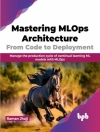This book introduces formal semantics techniques for a natural language processing audience. Methods discussed involve: (i) the denotational techniques used in model-theoretic semantics, which make it possible to determine whether a linguistic expression is true or false with respect to some model of the way things happen to be; and (ii) stages of interpretation, i.e., ways to arrive at meanings by evaluating and converting source linguistic expressions, possibly with respect to contexts, into output (logical) forms that could be used with (i).
The book demonstrates that the methods allow wide coverage without compromising the quality of semantic analysis. Access to unrestricted, robust and accurate semantic analysis is widely regarded as an essential component for improving natural language processing tasks, such as: recognizing textual entailment, information extraction, summarization, automatic reply, and machine translation.
Inhaltsverzeichnis
Preface.- 1.Predicate Languages.- 2.Self-selective Evaluation.- 3.Self-locating Evaluation.- 4.Treebank Annotation.- Appendix: A Standard ML Introduction.- Index.
Über den Autor
Alastair Butler is a Researcher based at the Center for the Advancement of Higher Education, Tohoku University, Japan. Before moving to Japan, he was a postdoctoral researcher first in the Institute for Logic Language and Communication at the University of Amsterdam, Netherlands and secondly in the Department of English Language and Literature at the National University of Singapore. He obtained his Ph.D. from the University of York, England, in 2002. He has published books with Palgrave Macmillan (The Syntax and Semantics of Split Constructions, co-authored with Eric Mathieu, 2004) and Brill Academic Publishers (The Semantics of Grammatical Dependencies, 2012 (Current Research in the Semantics/Pragmatics Interface series).












